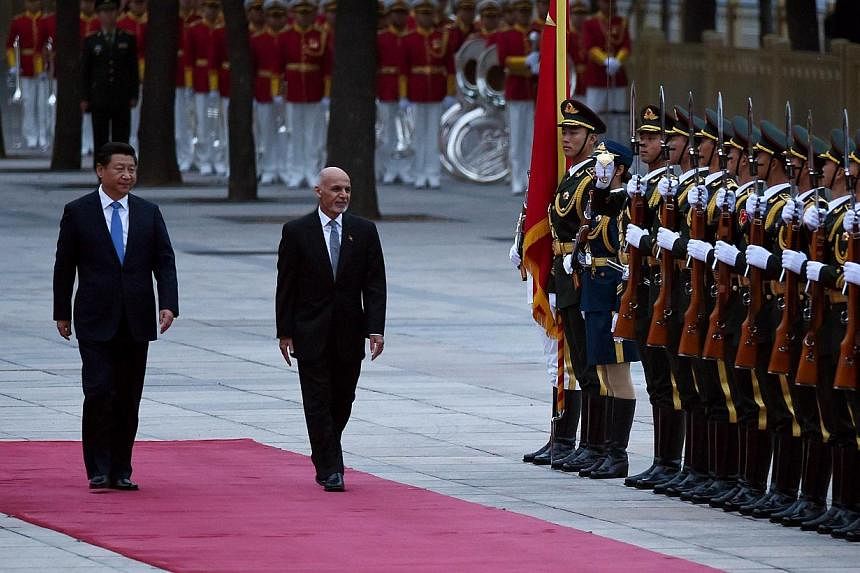BEIJING (AFP) - Afghanistan and China pledged a new long-term partnership with each other Thursday as Kabul's new president Ashraf Ghani began a four-day visit while NATO combat troops prepare to withdraw from his country.
Ghani, once a US-based academic, was sworn in as Afghanistan's new head of state last month in the war-torn Asian nation's first democratic transfer of power.
His first state visit as president is to resource-hungry China, which is seeking greater investment opportunities in Afghanistan.
"We look at China as a strategic partner, in the short term, medium term, long term and very long term," he told Chinese President Xi Jinping at Beijing's Great Hall of the People.
Xi's "vision" for the continent had opened "not just a new chapter for Asia, but an entirely new book", he said.
Hailing Ghani as "an old friend of the Chinese people", Xi said that he was prepared to work towards "a new era of cooperation in China-Afghanistan relations" to "take development to a new depth and breadth".
China shares only a 76km border with Afghanistan's remote far northeast, but has a keen interest in its neighbour's mineral resources.
It has already secured major oil and copper mining concessions in Afghanistan, which is believed to have more than US$1 trillion (S$1.25 trillion) worth of mineral resources, according to studies by the US Geological Survey.
At the same time, all NATO combat troops will leave the country by December, leaving Afghan troops and police to battle Taleban insurgents on their own.
There are now about 40,000 foreign troops in Afghanistan, down from their 2011 peak of around 140,000, and their departure raises questions over stability in the country.
A residual force of around 12,000 soldiers, including 9,800 Americans and 500 Britons, will remain under a security pact signed by Ghani, focusing on training local forces and counter-terrorism.
China's international role has come under criticism from some parties including US President Barack Obama, who in an August interview with the New York Times called Beijing a "free rider" for not doing more to quell violence in the Middle East.
China's state-run media struck back with a litany of editorials blasting Obama's remark.
"The US accusation, which comes out of nowhere, is nothing but an attempt for Washington to find a scapegoat for its failed policy in Iraq," the official Xinhua news agency wrote last month.
During his visit, Ghani is expected to sign a raft of bilateral agreements and on Friday attend the Istanbul Process, a key conference on his country, which is being hosted by Beijing this year.
Ghani's choice of Beijing for his first overseas trip since taking office is symbolically significant, Chinese analysts say.
"Seeking other sources of support is essential to Afghanistan's stability and development," China Institute of Contemporary International Relations research fellow Fu Xiaoqiang told the state-run Global Times newspaper.
"China, as the most capable nation in the neighbourhood, has to be its first option," Fu added.

